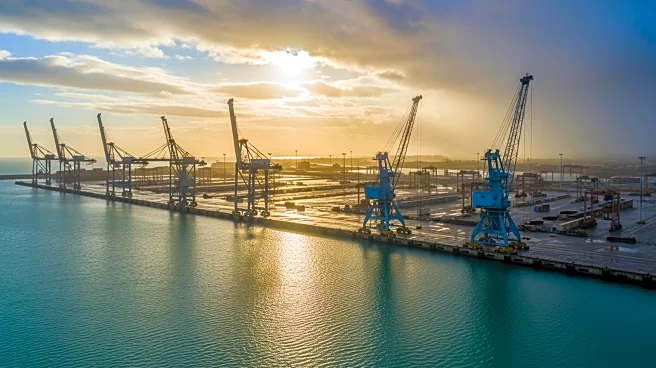What is the story about?
What's Happening?
President Trump has signaled plans to expand immigration enforcement operations in Chicago, potentially deploying the National Guard. This move has sparked concerns about the relationship between local police and federal authorities. Chicago's sanctuary policies, which have been in place for decades, bar local law enforcement from cooperating with federal immigration actions. Mayor Brandon Johnson recently signed an executive order to ensure city police do not collaborate with federal immigration agents, requiring officers to wear uniforms to distinguish them from federal agents. The situation is creating tension as Chicago police must balance public safety with maintaining community trust, especially in immigrant communities likely to be targeted.
Why It's Important?
The potential federal intervention in Chicago highlights a broader national debate over immigration enforcement and the role of local authorities. The deployment of federal forces could undermine public trust in local police, particularly in immigrant communities. This situation may lead to increased protests and civil unrest, affecting public safety and community relations. The outcome in Chicago could set a precedent for other cities facing similar federal pressures, influencing national immigration policy and local governance. The tension between federal and local authorities may also impact the effectiveness of law enforcement and community cooperation.
What's Next?
Chicago officials are preparing for the potential impact of increased federal presence, drawing on strategies used during the 2024 Democratic National Convention. The city is bracing for protests and possible clashes between local police and federal agents. The deployment of the National Guard remains a contentious issue, with Illinois Governor JB Pritzker opposing such measures. The legal and operational dynamics between local and federal authorities will continue to evolve, with potential implications for public safety and community trust. The situation may prompt further legal challenges and policy discussions at both state and national levels.















